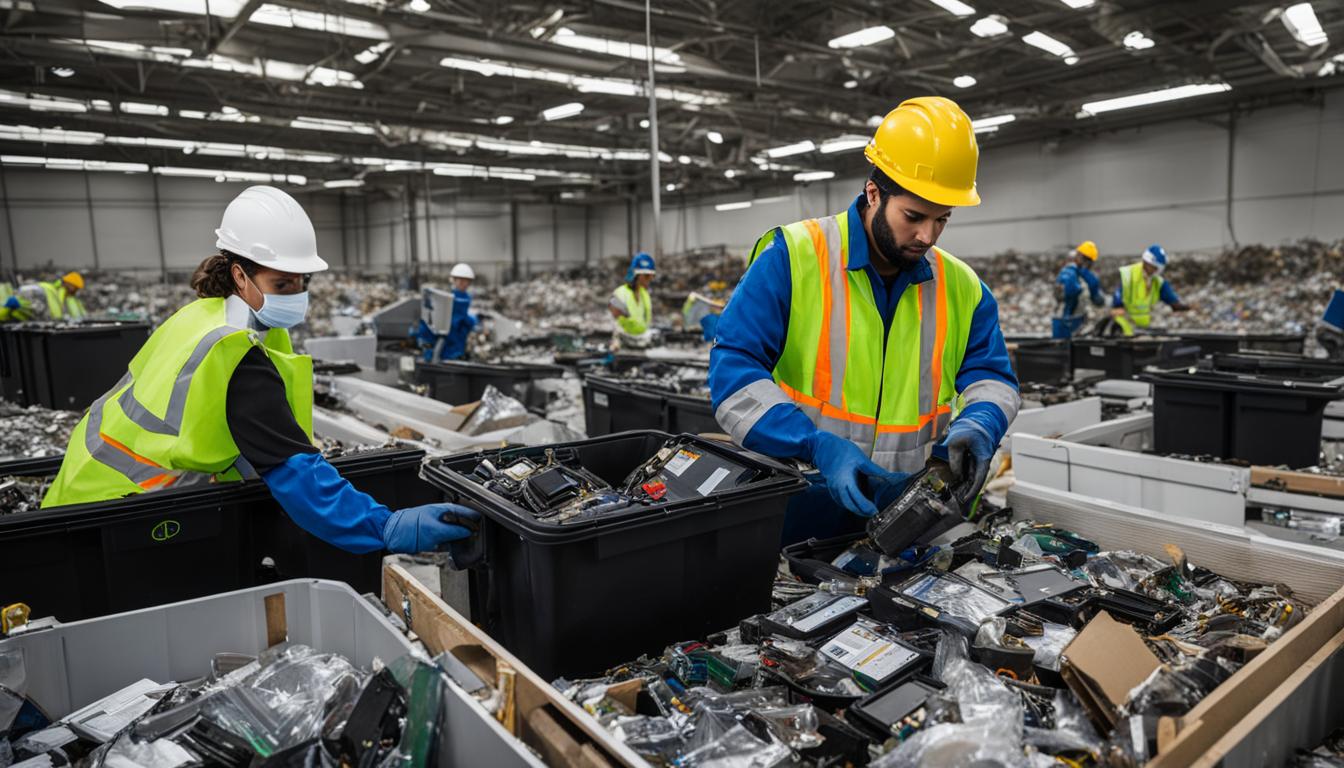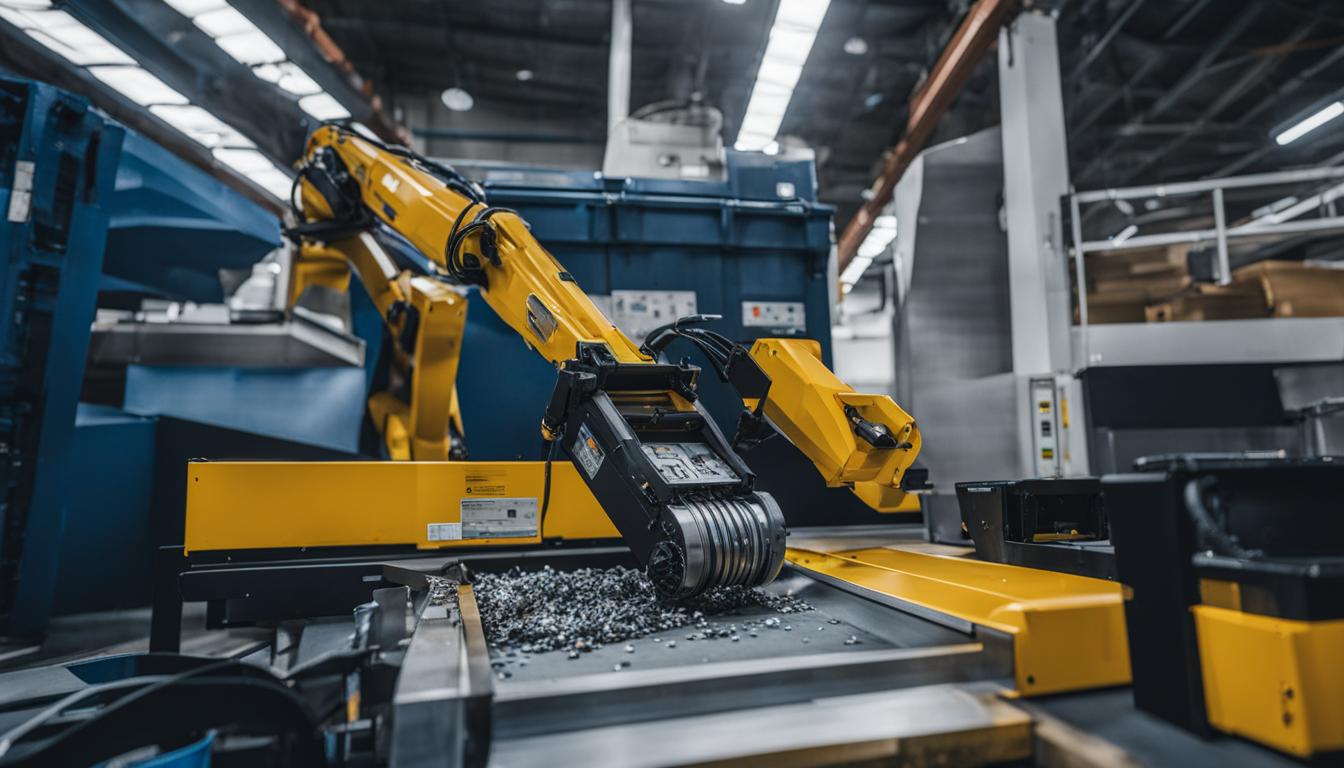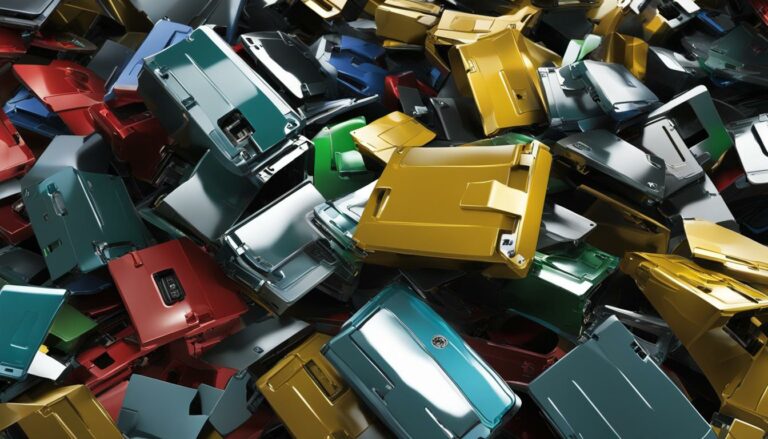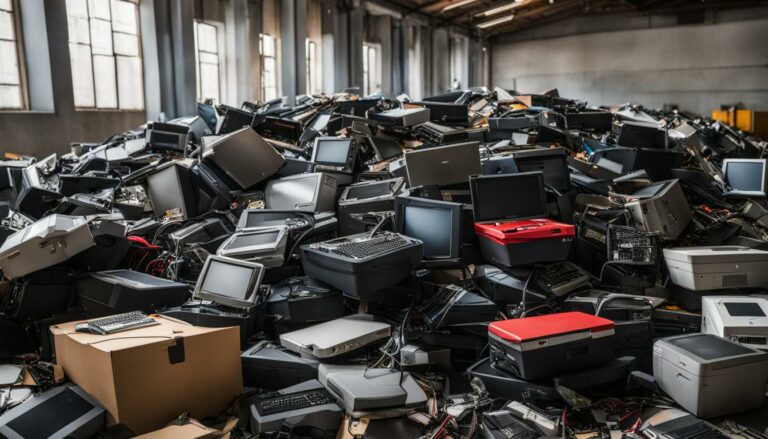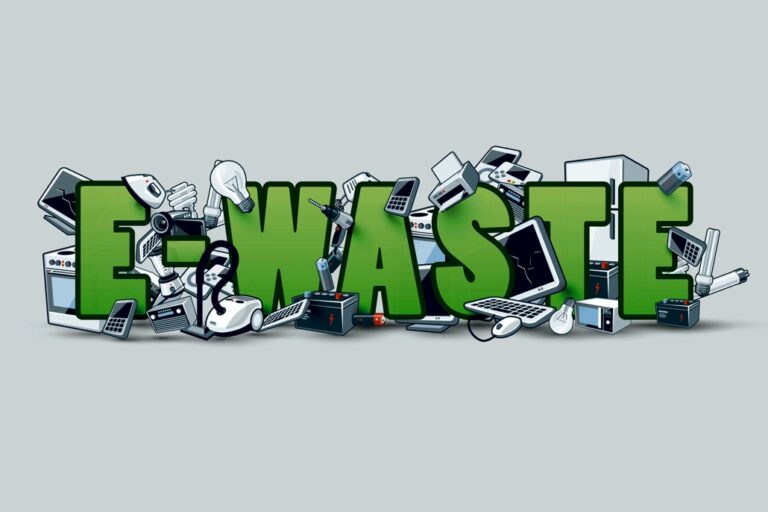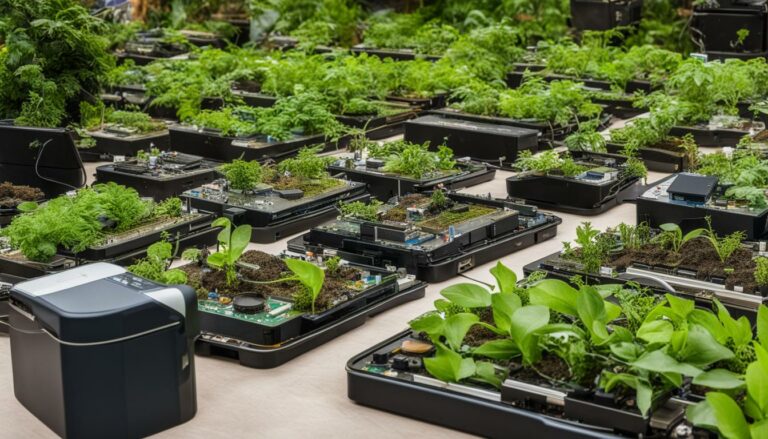Harnessing Blockchain for Transparent IT Recycling Chains
Blockchain technology has the potential to revolutionise waste management by bringing transparency, traceability, and efficiency to the sector. With the increasing concern for secure data disposal and sustainable technology solutions, the application of blockchain in electronic waste management has garnered significant attention.
By leveraging blockchain’s decentralised and immutable nature, stakeholders in the IT recycling industry can establish transparent waste management systems that enable the tracking of waste movements and ensure compliance with regulations. Additionally, blockchain can enhance traceability and accountability, preventing illegal dumping and promoting ethical recycling practices.
Through the use of smart contracts, waste management processes can be automated, reducing human error and improving overall efficiency. Blockchain technology also has the potential to incentivise recycling efforts and facilitate collaboration and data sharing among waste management entities.
Key Takeaways:
- Blockchain technology brings transparency and traceability to waste management.
- It promotes accountable disposal of electronic waste and prevents illegal dumping.
- Smart contracts automate waste management processes and improve efficiency.
- Blockchain incentivises recycling efforts and encourages collaboration among stakeholders.
- Its application in waste management contributes to sustainable technology solutions.
The Role of Blockchain in Transparent Waste Management
Transparency is crucial in waste management to ensure accountability and proper handling of waste materials. Blockchain’s decentralized nature allows for the creation of an immutable record of every transaction, enabling stakeholders to track the entire waste management lifecycle. Improved traceability and accountability can be achieved through blockchain technology, as it provides a tamper-proof record of waste movements and identifies any unauthorized disposal.
Smart contracts can automate waste management processes, reduce human error, and improve efficiency. Incentives can be introduced through tokenization to encourage recycling and promote a circular economy. Furthermore, blockchain-based platforms can facilitate collaboration and data sharing, optimizing resource allocation and fostering innovation in waste management.
“Blockchain technology has the potential to revolutionize waste management by bringing transparency, traceability, and efficiency to the sector.”
By leveraging the power of blockchain, waste management entities can ensure secure data erasure, green computing, and ethical recycling practices. The use of blockchain in waste management can provide assurance that sensitive data is disposed of properly, mitigating the risk of data breaches. Green computing can be promoted by tracking the environmental impact of electronic waste and encouraging responsible recycling practices. Ethical recycling practices can be enforced through blockchain-enabled traceability, ensuring that waste materials are processed in compliance with environmental regulations and ethical standards.
Overall, blockchain technology can play a transformative role in transparent waste management. It offers a decentralized and tamper-proof platform that enhances traceability, accountability, and efficiency. By harnessing blockchain capabilities, waste management can be optimized, contributing to a more sustainable and environmentally friendly future.
| Aspects | Traditional Waste Management | Blockchain-Enabled Waste Management |
|---|---|---|
| Traceability | Manual record-keeping prone to errors and manipulation | Decentralized and immutable transactions for transparent tracking |
| Accountability | Limited visibility and difficulty in identifying responsible parties | Tamper-proof records for identifying unauthorized disposal |
| Efficiency | Time-consuming and inefficient manual processes | Automation through smart contracts for streamlined operations |
| Sustainability | Inadequate monitoring of environmental impact and recycling practices | Tokenization and incentives for promoting green computing and ethical recycling |
Applications of Blockchain in Waste Management and Recycling
Blockchain technology offers a wide range of applications in waste management and recycling, enabling more efficient and sustainable practices. One key area where blockchain can make a significant impact is in digital asset management. By utilizing blockchain’s transparent and tamper-proof ledger, waste management entities can track and trace the disposal and recycling of digital assets such as electronic devices. This ensures proper disposal and promotes responsible IT asset recovery. With blockchain, the entire lifecycle of digital assets can be recorded and verified, providing a higher level of accountability and reducing the risk of unauthorized disposal or data breaches.
In addition to digital asset management, blockchain can also contribute to the development of eco-friendly IT solutions. By integrating blockchain technology into the supply chain of IT products, stakeholders can ensure responsible sourcing and encourage the use of sustainable materials. The transparent nature of blockchain allows for the verification of ethically recycled components and the assessment of a product’s overall environmental impact. By promoting the use of eco-friendly IT solutions, blockchain can facilitate the transition towards a more sustainable and circular economy.
Furthermore, blockchain can play a role in optimizing IT asset recovery processes. By utilizing smart contracts, waste management entities can automate the recovery and recycling of IT assets, reducing human error and improving efficiency. These smart contracts can be programmed to verify the condition and authenticity of recovered assets, ensuring proper recycling and maximizing value extraction. Through blockchain-enabled IT asset recovery, the environmental impact of electronic waste can be minimized, contributing to a greener and more sustainable future.
Table:
| Applications of Blockchain in Waste Management and Recycling | Benefits |
|---|---|
| Digital Asset Management | Proper disposal and tracking of electronic devices, reducing data breaches and unauthorized disposal |
| Eco-friendly IT Solutions | Ensuring responsible sourcing, promoting the use of sustainable materials, and assessing environmental impact |
| IT Asset Recovery | Automated processes, reducing human error, and maximizing value extraction from recovered assets |
Advantages and Limitations of Blockchain for Sustainable Waste Management
Blockchain technology offers numerous advantages when it comes to promoting green computing, ethical recycling practices, and effective electronic waste management. The decentralized nature of blockchain ensures transparency, security, and traceability, making it an ideal tool for promoting sustainability in waste management.
By leveraging blockchain’s transparent and tamper-proof ledger, stakeholders in the waste management ecosystem can verify and authenticate waste disposal processes, ensuring that ethical recycling practices are followed. This creates a system that promotes responsible waste management and reduces the risk of greenwashing or false sustainability claims.
“Blockchain’s decentralized nature allows for the creation of an immutable record of every transaction, enabling stakeholders to track the entire waste management lifecycle.”
Furthermore, the enhanced traceability provided by blockchain empowers consumers to make environmentally conscious decisions. They can have confidence in the disposal and recycling methods employed, knowing that the entire process is recorded and can be audited. This promotes accountability and encourages the adoption of sustainable practices.
However, it is important to acknowledge the limitations of blockchain technology in the context of sustainable waste management. One key challenge is the energy consumption associated with mining and maintaining a blockchain network. The energy-intensive process of blockchain mining raises concerns about its carbon footprint and potential environmental impact.
“The energy-intensive process of mining and the steep learning curve associated with blockchain technology are limitations that need to be addressed.”
Additionally, the technical complexity of implementing blockchain solutions and the regulatory hurdles surrounding the technology pose challenges to its widespread adoption. These issues need to be overcome through collaboration between industry stakeholders and policymakers to fully harness the potential of blockchain in sustainable waste management.
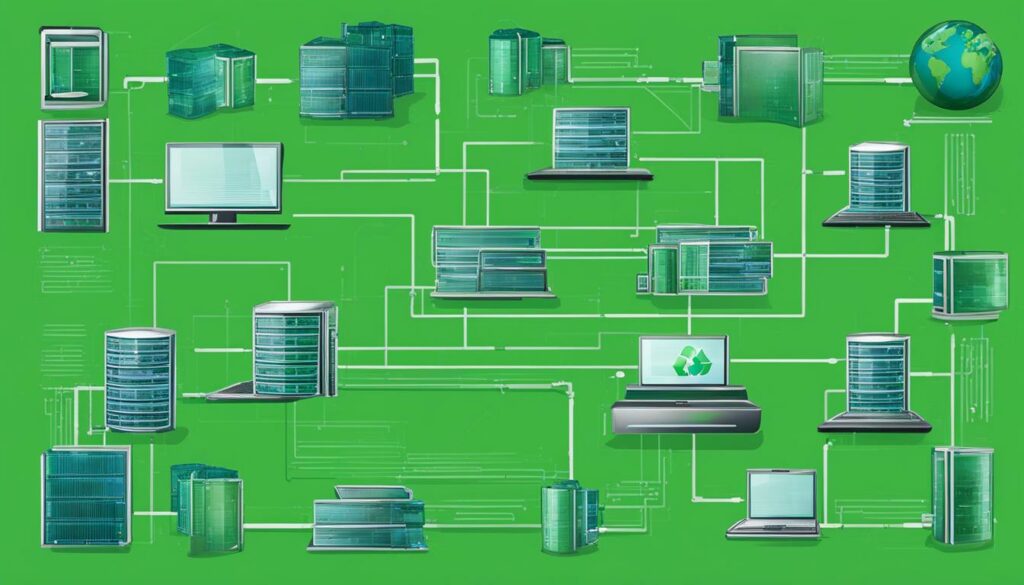
Table: Comparing the Advantages and Limitations of Blockchain in Sustainable Waste Management
| Advantages | Limitations |
|---|---|
| Transparency and traceability | Energy consumption |
| Security and accountability | Technical complexity |
| Verification of ethical recycling practices | Regulatory hurdles |
| Promotion of sustainable waste management |
Conclusion
Blockchain technology holds immense potential for transforming waste management and recycling into more transparent, efficient, and sustainable processes. By leveraging blockchain’s decentralized and immutable nature, waste management can be revolutionised, promoting transparency, traceability, and accountability. Automation through smart contracts, incentivisation mechanisms, and collaborative platforms can optimise waste management operations and foster the development of a circular economy. Embracing blockchain technology in waste management has the power to create a more sustainable future for our planet.
As we move towards a more eco-friendly future, it is crucial to explore innovative solutions like blockchain that can enable us to achieve a circular economy. The integration of blockchain technologies can enhance the efficiency and reliability of waste management systems, ensuring ethical recycling practices are followed. By creating a transparent and tamper-proof record of waste movements, blockchain can drive accountability and responsible handling of waste materials.
Moreover, the automation capabilities of blockchain, through smart contracts, can revolutionise waste management processes, reducing human error and improving overall efficiency. Incentivisation mechanisms, such as tokenisation, can encourage recycling efforts and promote a circular economy by rewarding individuals and organisations for their eco-friendly IT solutions. By embracing these emerging technologies and ethical recycling practices, we can create a more sustainable and environmentally conscious future.
In conclusion, blockchain offers a promising solution for transforming waste management and recycling into more transparent, efficient, and ethical practices. By embracing eco-friendly IT solutions and adopting a circular economy approach, we can harness the power of blockchain to drive positive change in the waste management industry. It is imperative for stakeholders to collaborate and adopt these technologies to ensure a sustainable future for generations to come.
FAQ
What is blockchain technology?
Blockchain technology is a decentralized digital ledger that records and verifies transactions across multiple computers, creating a transparent and tamper-proof record.
How can blockchain revolutionize waste management?
Blockchain can bring transparency, traceability, and efficiency to waste management by enabling stakeholders to track waste movements, ensuring compliance with regulations, and automating waste management processes through smart contracts.
What are the advantages of blockchain in waste management?
Blockchain provides transparency, security, and traceability, deterring greenwashing, improving accountability, and promoting sustainable practices. It also enhances collaboration and data sharing among waste management entities.
What are the challenges of implementing blockchain in waste management?
Challenges include energy consumption, technical complexity, and regulatory hurdles. The energy-intensive process of mining and the learning curve associated with blockchain technology need to be addressed.
What are the applications of blockchain in waste management?
Blockchain can be used to track and trace waste materials, authenticate disposal processes, ensure responsible sourcing in supply chain management, and facilitate secure cross-border invoice payments in international waste management operations.


